Victory events 'serve as valuable reminder'
Updated: 2015-05-06 07:20
By Zhao Shengnan(China Daily)
|
||||||||
Seven decades after the end of World War II, China and Russia have more "responsibility and capability" to jointly uphold the outcome of their victory with the international community, a senior diplomat said on Tuesday.
The postwar order, with the United Nations as the core, has helped ensure that the world did not endure another conflict on that scale, but challenges remain as fascism and militarism re-emerge and attempts to distort history linger, Vice-Foreign Minister Cheng Guoping said.
The celebrations to be held by the two countries to mark the anniversary will serve as a reminder of the valuable lessons learned, the importance of firmly adhering to the factual truth of history, and oppose any moves to revitalize the forces of fascism and militarism, he said in Beijing.
Cheng made the remarks at a forum following Beijing's announcement that President Xi Jinping will visit Russia from Friday to Sunday and attend a ceremony in Moscow to commemorate the 70th anniversary of victory of the Great Patriotic War (1941-45).
Xi will attend a Victory Day parade on Saturday in Moscow's Red Square. For the first time, a contingent of honor guards from the People's Liberation Army will take part in the parade.
China is also planning a military parade later this year to commemorate victory over Japanese forces.
Russia's Ambassador to China, Andrey Denisov, told the forum that avoiding a repeat of such a tragedy should be paramount. The close partnership between Russia and China has become a key pillar in safeguarding global peace and stability, he said.
Observers said Chinese and Russian celebrations to mark the end of the war would highlight both nations' role as the main theaters in Asia and Europe, and "serve as a warning against the undercurrent that is defying historical facts".
Yu Zhenqi, vice-chairman of the China Foundation for International Studies, said the latest example of this undercurrent was Japanese Prime Minister Shinzo Abe's speech to the US Congress last week. Abe referred to "actions" instead of "aggression and colonial rule", and "deep remorse" rather than "heartfelt apology" when talking about the war, in an apparent effort to dilute the country's wartime atrocities.
Wang Haiyun, a military expert at the China Institute for International Strategic Studies, said Abe's attempts to dilute history will not work, and the forces in Japan that want to overturn the postwar order put regional peace and stability at risk.
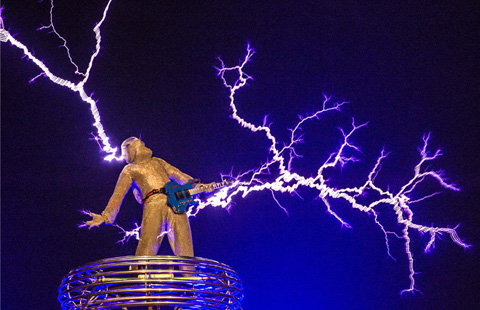
 Ten photos you don't wanna miss - May 7
Ten photos you don't wanna miss - May 7
 Siberian tiger cubs in NE China
Siberian tiger cubs in NE China
 The wonders of the Yaxi Expressway
The wonders of the Yaxi Expressway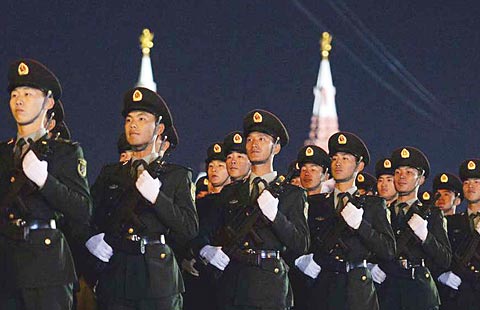
 China joins rehearsal for Victory Day parade in Moscow
China joins rehearsal for Victory Day parade in Moscow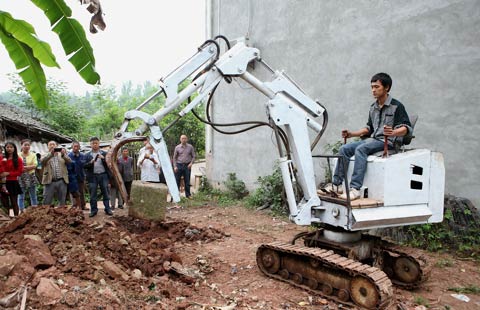
 Man impresses with home-made excavator
Man impresses with home-made excavator
 Blossoms a boon for tourism
Blossoms a boon for tourism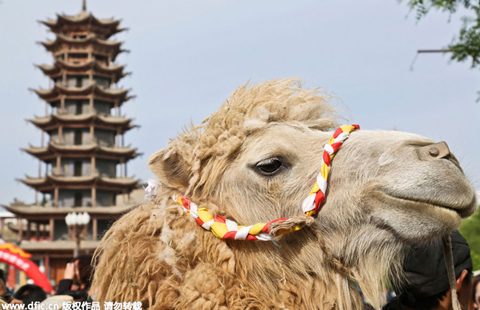
 Camel caravan on the Silk Road
Camel caravan on the Silk Road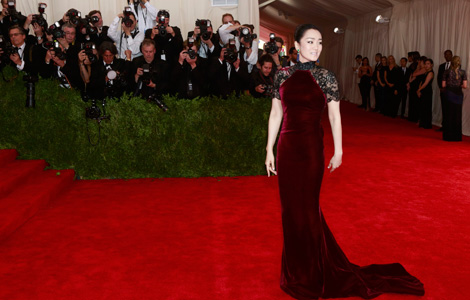
 Met Museum celebrates China with annual gala
Met Museum celebrates China with annual gala
Most Viewed
Editor's Picks

|

|

|

|

|

|
Today's Top News
China pledges continued help as Nepal rebuilds
Annual China-US air passenger trips top 6m
Investors tee up in US golf paradise
Met gala draws Chinese fashion bloggers' criticism
Understanding culture called key for foreign businesses in China
US authorizes ferry service to Cuba
China Daily's website takes top spot in readership
Xi will honor soldiers during Russia trip
US Weekly

|

|






